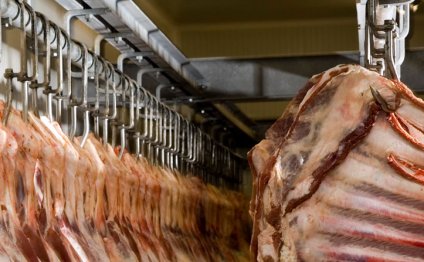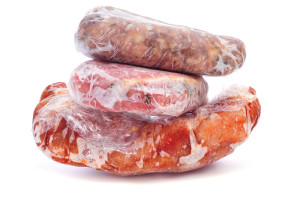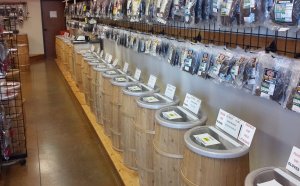
Meat Lockers
 Look no further compared to the local food action to locate record repeating it self. Food preservation, root cellars, seed saving, along with other “old-fashioned” techniques are now being reinvigorated all over the country, appearing that plans have stamina.
Look no further compared to the local food action to locate record repeating it self. Food preservation, root cellars, seed saving, along with other “old-fashioned” techniques are now being reinvigorated all over the country, appearing that plans have stamina.
Now the meat locker is making a return, thawing completely after a long, frost nova since its heyday when you look at the 1940s.
When frozen-food was introduced, residence freezers are not however widespread and buyers required somewhere to store the frozen meat they bought. So butchers and grocers set-up chilled spaces right beside their particular stores. These “meat lockers” had been filled up with specific bins—often that includes their particular keys—that customers rented and may visit whenever they needed to get their beef.
Today, people who want to buy and store the quantities of meat that many farmers sell directly, through meat-buying clubs, or in community supported agriculture (CSA) meat shares, are in a similar bind. Should they are lacking area for an additional fridge, or can’t purchase one, they’re basically struggling to access the absolute most affordable type of regional, pasture-raised meat there is—animals offered in bulk.
“People bristle at the price of local meat since they glance at farmers’ marketplace prices, ” states Matthew LeRoux, agriculture marketing and advertising specialist at Cornell Cooperative Extension of Tompkins County in ny. “However, if they purchase an entire or one fourth of an animal, they’re actually in a position to cut costs.”
In 2014, LeRoux and a handful of colleagues at Cornell Extension whom run the Finger Lakes Meat Project launched what may be the nation’s very first modern-day meat locker, in Ithaca, nyc. In 2015, they launched an extra meat locker, in nearby Corning. Already, Cornell Extension gets telephone calls from meals activists all over country who wish to replicate this excellent task inside their communities.
The two 10-foot by 14-foot walk-in freezers are located in basements of downtown structures inside their respective locations. Each freezer houses 65 containers that can come in two sizes. The month-to-month local rental cost in Ithaca is $5 for an 18-gallon bin and $8 for a 25-gallon one. (The costs at the Corning locker are a little less.)
With a locker, the savings on volume animal meat could be considerable: LeRoux determines that Ithaca residents can save between $200 and $250 when they buy a frozen quarter of beef (about 100 lbs.) for between $600 and $650 from a nearby farm rather than purchasing those cuts independently from location shops.
Freezerless foodies when you look at the Finger Lakes area have flocked toward Ithaca locker. There's now a waiting listing there (although the Corning locker continues to have some available containers) and Cornell Extension is thinking about turning ownership of the freezers over to renters, who would form a co-op. Presently, the lockers are a project regarding the Finger Lakes Meat Project, a Cornell Extension initiative that also includes Meat Suite, an online device for consumers who would like to find regional bulk beef.
The rise in popularity of the beef lockers leads LeRoux to think that food activists in other US urban centers and cities are going to get a hold of success should they launch comparable programs—even on a modest scale. “we don’t believe most places could have difficulty finding tenants, ” he claims.
But LeRoux stresses that neighborhood knowledge is really important. Folks need to know just how a meat locker works, how-to purchase meat in bulk, and exactly what the personal benefits tend to be. Whilst it cost $20, 000 purchasing and put in each fridge in the Finger Lakes, these were built with resources from a U.S. Department of Agriculture (USDA) grant that can supplied around $40, 000 for Cornell Extension staff to hold workshops and engage in outreach.
Supporting Farmers
Meat lockers don’t just gain consumers; they’re additionally a possible boon to livestock farmers. Although farmers make less cash per pound on sale of quarter, half, and entire creatures, they conserve many time and work by offering their meat at one time.
Jake Delisle, a 30-year-old beginning farmer in Ithaca, lifted 18 pigs on pasture this past year at their Roaming Root Farm. His beef sells for between $7.50 a pound (for sausage) and $10.50 a pound (for smoked ham steak). He previously a number of clients who doesn’t have-been capable pay for their chicken in the amounts they purchased this past year without accessibility the beef locker.
Delisle additionally rented a small number of locker bins himself and used them to store part of his stock. Cornell Extension has actually since banned farmers from renting bins—the task had been designed for consumers—but Delisle had been grandfathered in. He is grateful that he managed to access affordable fridge area while he had been beginning his farm.
“If we would like this regional food activity to essentially get anywhere and give men and women on a better scale, we require these centralized co-op storage facilities, because individuals like me can’t afford professional scale infrastructure, ” Delisle claims.
In a few says, especially in the Midwest, little slaughtering facilities in many cases are known as beef lockers, nevertheless they don’t provide consumer rental services (some store game for hunters). The American Association of Meat Processors told Civil consumes it hadn’t been aware of any kind of meat lockers like those in the Finger Lakes, and neither had the Niche Meat Processors help system, meaning that the latest York lockers are likely special.
LeRoux loves to inform the story of Ithaca’s early public meat locker, which operated inside 1940s within dawn associated with the freezer age. It was called “Mother Zero” and, like the present-day locker, ended up being found downtown and established by Cornell to motivate individuals to get frozen animal meat.
Unlike today’s locker, mom Zero had been built to inspire consumers to change with their own home fridge and encourage them to be part of the frozen-food change. But this transformation eventually put public animal meat lockers out-of business—at minimum for a couple years.
Share this Post
Related posts
Dallas Jerky
You have no items in your shopping cart. Spend $100 even more to receive FREE GROUND SHIPPING! Visit us these days! Totally…
Read MoreGerman Beef Jerky
By 10 on a brisk Saturday morning, the retro aluminum-lined glass butcher case within European Deluxe Sausage Kitchen is…
Read More










